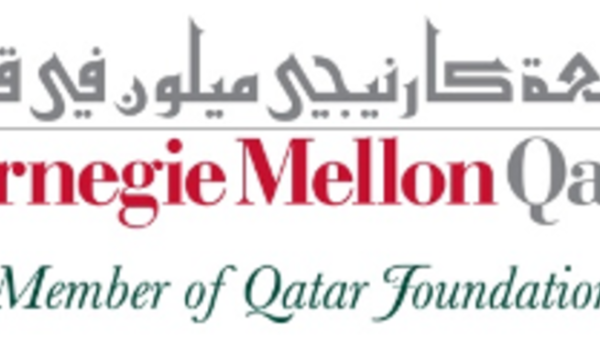Excellence at Carnegie Mellon manifested in diversity of distinguished lectures offered this week

What do the future of electricity, algorithms and the evolution of the stock market have in common? All are topics of discussion this week as part of three distinguished lectures taking place at Carnegie Mellon University in Qatar.
Carnegie Mellon Qatar has established these series as part of their overall goal of promoting excellence, entrepreneurship and innovation. The series are named after former deans of Carnegie Mellon – A. Nico Habermann, Richard M. Cyert, and John Patrick Crecine.
“Carnegie Mellon is pleased to offer these distinguished lectures, which will offer students, faculty and the broader community access to prominent scholars and leaders in their fields,” said Ilker Baybars, dean of Carnegie Mellon University in Qatar.
Jerome Apt, former NASA space shuttle Atlantis astronaut and director of the Carnegie Mellon Electricity Industry Center in Pittsburgh, opens the week of distinguished lectures with a talk on the future of electricity.
"Electric power is the most desired form of energy, supplying 40 percent of the world's energy needs – oil is second at 35 percent. The fuels and technologies used to generate electricity continue to evolve. Qatar's per person use of electricity ranks 4th in the world, and thus the changes in electrical power may have interesting effects here," Apt said.
With Qatar’s increasing use of electricity per person, Apt will discuss how Qatar and the natural gas industry can play a role in the future of the electrical grid given “the fluctuations in power output from wind and solar power.” Apt’s lecture, “Electricity – What’s Next?,” is the first in the Richard M. Cyert Distinguished Lecture Series in Business Management. The lecture is scheduled to take place on Monday, March 12 at 4:30 p.m..
Modern society depends not only on the steadfastness of its electrical grids, but also on its information technology infrastructure.
Google has made itself into a billion-dollar corporation off the success of its search engine algorithm, or “the brains of an IT-system,” as Kurt Mehlhorn, director of the Max Planck Institute of Informatics at Saarland University in Germany, refers to them.
Mehlhorn will be lector for Carnegie Mellon’s 2nd A. Nico Habermann Distinguished Lecture in Computer Science on Tuesday, March 13 at 4:30 p.m.
Speaking about his lecture, Mehlhorn said: “Algorithms solve such difficult combinational and geometric problems, such as: What is the fastest route from point A to point B? How can we determine how to optimally assign jobs to machines? How do robots move from one location to another?”
But the algorithms solving such problems are complex and their implementation can be prone to error. The director’s lecture will open a discussion on how these implementations can be more reliable, through formally verified certifying computations.
A third lecture at 4:30 p.m. on Wednesday, March 14, will examine the quantification of financial markets as part of the John Patrick Crecine Distinguished Lecture in Social Sciences.
John Lehoczky, dean of the Dietrich College of Humanities and Social Sciences at Carnegie Mellon in Pittsburgh, will discuss the evolution of the stock market and stock trading over the past 50 years – an apt topic for discussion, as Qatar aims to become a financial hub in the region.
Further, he will discuss how the rise of quantitative finance has resulted in “dramatic changes in the structure of the markets creating new stock exchanges and electronic trading that made possible the creation of new markets whose trading is dominated by high frequency algorithmic trading.”
Recent major anomalies such as the “flash crash” on May 6, 2010, in which the Dow Jones Industrial Average plunged about 1000 points—or about nine percent—only to recover those losses within minutes, make high frequency algorithmic trading a serious topic for discussion.
This week’s lectures demonstrate how Carnegie Mellon pushes its students and faculty to strive for excellence in the diversity of their knowledge base.
Background Information
Carnegie Mellon University Qatar
For more than a century, Carnegie Mellon University has challenged the curious and passionate to imagine and deliver work that matters. A private, top-ranked and global university, Carnegie Mellon sets its own course with programs that inspire creativity and collaboration.
In 2004, Carnegie Mellon and Qatar Foundation began a partnership to deliver select programs that will contribute to the long-term development of Qatar. Today, Carnegie Mellon Qatar offers undergraduate programs in biological sciences, business administration, computational biology, computer science, and information systems. Nearly 400 students from 38 countries call Carnegie Mellon Qatar home.






